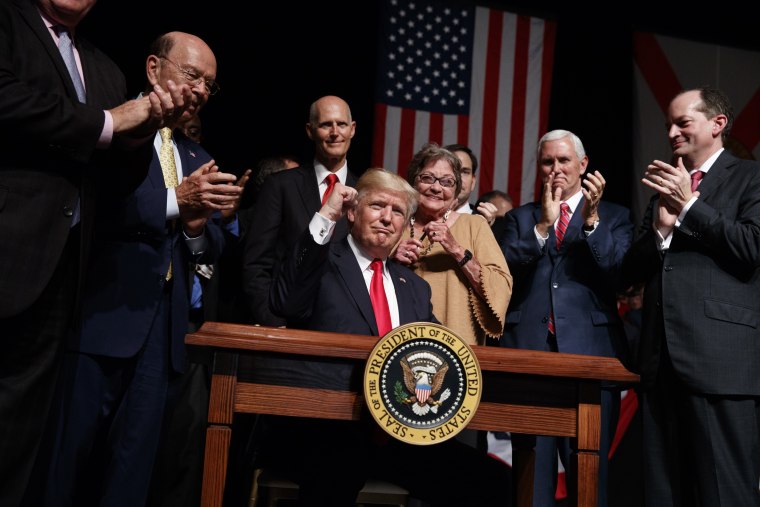Cuba's government slammed President Donald Trump for his "hostile rhetoric" during a speech Friday that it said took "a backward step in the relationship between the two countries."
Trump's address in Miami announced changes in the United States' policy toward Cuba after the Obama administration decided to normalize relations with the island nation following a decades-long freeze of diplomatic ties.
But the Raul Castro-led government didn't care for Trump touting his desire to partially reverse course from the "last administration's completely one-sided deal."
The Castro government said in a statement that Trump's speech "reminded the times of open confrontation with our country, announced the policy of his government towards Cuba which reverts the progress achieved in the past two years."
The Trump administration says it is changing the policy of the U.S. toward Cuba by limiting the amount of money that might go toward the Cuban military, restricting American tourism there and reaffirming the 56-year-old trade embargo. The policy memorandum directs the Treasury and Commerce departments to create new regulations within 30 days, although they wouldn't be in place for several months.
Related: Freely Wandering in Cuba Gets Harder to Do Under Trump
Trump has stopped short of completely resetting relations with Cuba again: He isn't ending diplomatic ties, or closing the U.S. Embassy in Havana or placing restrictions on cigars, rum and other items that Americans can schlep home.
But the changes would ultimately meet four objectives, according to the White House: Ensure compliance with U.S. law, hold the Cuban government accountable for alleged human rights abuses, further the interests of the U.S. and the Cuban people, and "empower the Cuban people to develop greater economic and political liberty."
The Cuban government argued that it would only be a retread of the past, and that the Trump administration is not in a position to lecture.
Its statement takes a swipe at the United States under Trump by noting issues that negatively affect Americans, including racial discrimination and gun violence, and controversial policies on immigration, a border wall and abandoning the Paris Agreement on climate change.
The Cuban government maintained that the new policies would not work, comparing it to the economic embargo that never ushered the Castro regime out of power as the U.S. had hoped.
"The Government of Cuba denounces the new measures for strengthening the blockade, which are destined to fail as proven repeatedly in the past," the statement said. "They will not achieve their purpose of debilitating the Revolution or submitting the Cuban people, whose resistance to the aggressions of any kind and origin has been proven throughout six decades."

